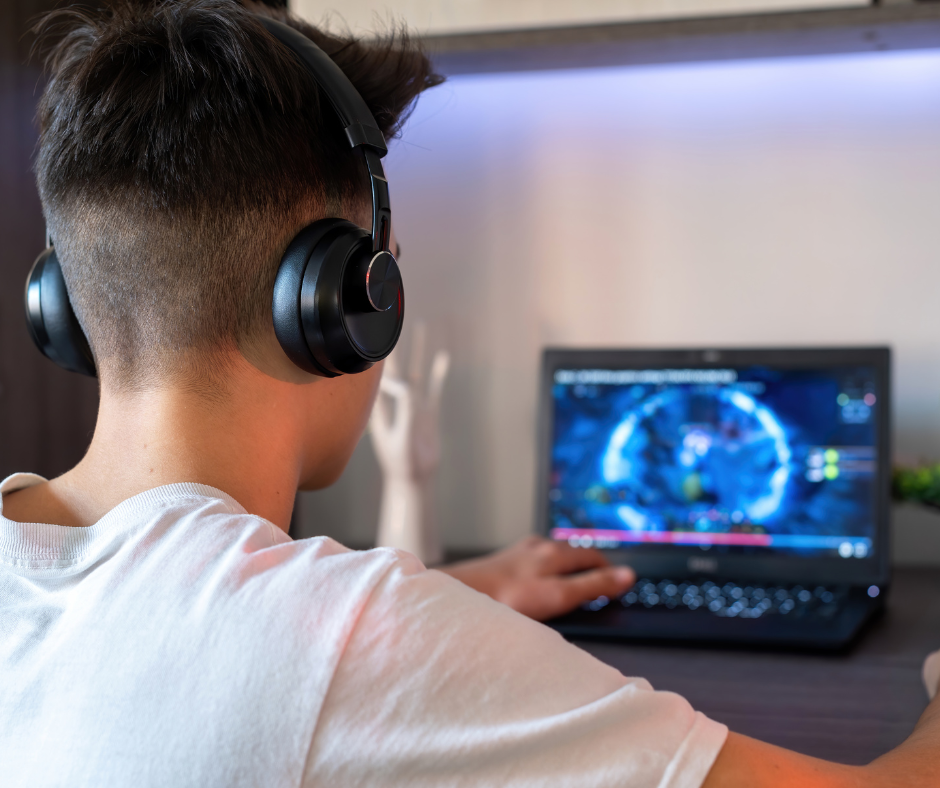Choosing the right gaming laptop can be a daunting task given the plethora of options available in the market. The perfect gaming laptop should balance performance, display quality, battery life, and portability. This article will guide you through the essential factors to consider, helping you answer the critical question: “Which gaming laptop should you choose?”
Understanding Your Gaming Needs
Before diving into specifications and brands, it’s important to assess your gaming needs. Are you a casual gamer who enjoys mainstream games, or are you a hardcore gamer who plays graphically demanding AAA titles? Knowing the type of games you play and the performance you expect will significantly narrow down your choices.
Casual gamers might find mid-range laptops with decent graphics and processing power sufficient, while hardcore gamers would require high-end models with powerful GPUs and CPUs.
Key Specifications to Consider
Processor (CPU)
The CPU is the heart of any gaming laptop. It handles all the computations and ensures smooth gameplay. For gaming, Intel Core i5 and i7 processors or their AMD Ryzen equivalents are recommended. These processors offer excellent performance and multitasking capabilities. High-end gaming laptops might even feature Intel Core i9 or AMD Ryzen 9 CPUs for top-notch performance.
Graphics Card (GPU)
The GPU is arguably the most crucial component for gaming. It renders the images, animations, and videos you see on the screen. NVIDIA and AMD are the leading GPU manufacturers. For casual gaming, an NVIDIA GeForce GTX 1650 or AMD Radeon RX 5500M might suffice. However, for more demanding games, consider laptops with NVIDIA GeForce RTX 2060, 2070, 2080, or the newer 30-series GPUs. These GPUs support real-time ray tracing, enhancing the visual fidelity of games.
RAM
Memory plays a vital role in gaming performance. A minimum of 8GB of RAM is required for most modern games, but 16GB is recommended for smoother performance and future-proofing your laptop. Some high-end gaming laptops come with 32GB or more, allowing for extensive multitasking and better performance in resource-intensive games.
Display Quality
Screen Size and Resolution
Gaming laptops typically come with screen sizes ranging from 13 inches to 17 inches. A larger screen size can enhance the gaming experience, but it also makes the laptop less portable. The resolution is another critical factor; Full HD (1920×1080) is standard, providing a good balance between clarity and performance. For those seeking ultra-crisp visuals, 4K (3840×2160) displays are available but require more powerful GPUs to run games at such high resolutions.
Refresh Rate
The refresh rate of a display affects how smooth the motion appears in games. Standard displays have a 60Hz refresh rate, but gaming laptops often feature 120Hz, 144Hz, or even 240Hz refresh rates. A higher refresh rate results in smoother gameplay, which is particularly beneficial in fast-paced games like first-person shooters.
Storage Options
SSD vs. HDD
Solid State Drives (SSDs) are much faster than traditional Hard Disk Drives (HDDs). An SSD reduces load times, speeds up boot times, and generally makes your system more responsive. Many gaming laptops offer a combination of both: an SSD for the operating system and frequently used applications, and an HDD for additional storage. A minimum of 512GB SSD is recommended for gaming, but if your budget allows, opting for a 1TB SSD can provide ample space for games and other software.
Battery Life
Gaming laptops are notorious for their poor battery life due to the high power consumption of CPUs and GPUs. While gaming, it’s common to keep the laptop plugged in to ensure optimal performance. However, if you plan on using the laptop for non-gaming tasks on the go, battery life becomes more critical. Some models offer better battery life with optimized power management settings, so look for laptops that balance performance and efficiency.
Build Quality and Design
Portability
If you intend to carry your laptop frequently, consider its weight and thickness. High-performance gaming laptops can be bulky and heavy, but there are slim models that don’t compromise too much on performance. Brands like Razer and MSI offer sleek designs without sacrificing gaming capabilities.
Cooling System
Gaming generates a lot of heat, and a good cooling system is essential to maintain performance and prevent overheating. Look for laptops with advanced cooling solutions, such as multiple fans, heat pipes, and effective ventilation. Some gaming laptops feature customizable fan speeds to balance noise and cooling efficiency.
Brand and Price Considerations
Brand Reputation
Brand reputation can provide insights into the build quality, customer service, and reliability of a gaming laptop. Popular brands like ASUS ROG, MSI, Alienware, Razer, and Acer Predator have established themselves as leaders in the gaming laptop market. Reading reviews and testimonials can help gauge the user experience with different models.
Budget
Your budget will heavily influence your choices. Entry-level gaming laptops can be found for around $800 to $1000, offering decent performance for casual gaming. Mid-range laptops range from $1000 to $1500, providing a good balance of performance and features. High-end gaming laptops can exceed $2000, delivering top-of-the-line specifications for the most demanding gamers.
Future-Proofing Your Purchase
Upgradability
While most gaming laptops offer limited upgradability compared to desktops, some allow for upgrades to RAM and storage. This can extend the lifespan of your laptop, making it a worthwhile consideration if you plan to keep your device for several years.
VR-Ready Laptops
Virtual Reality (VR) gaming is gaining popularity, and if you’re interested in exploring VR, ensure your laptop is VR-ready. This typically means having a powerful GPU, sufficient RAM, and the necessary ports for VR headsets.
Conclusion
Choosing the right gaming laptop involves balancing various factors including performance, display quality, battery life, portability, and budget. By understanding your gaming needs and carefully considering the specifications and features outlined in this guide, you can make an informed decision. Whether you’re a casual gamer or a hardcore enthusiast, there is a gaming laptop out there that will suit your needs perfectly. So, which gaming laptop should you choose? The answer lies in the details that matter most to you and your gaming preferences.
For more tips like this, keep exploring our blogs!

